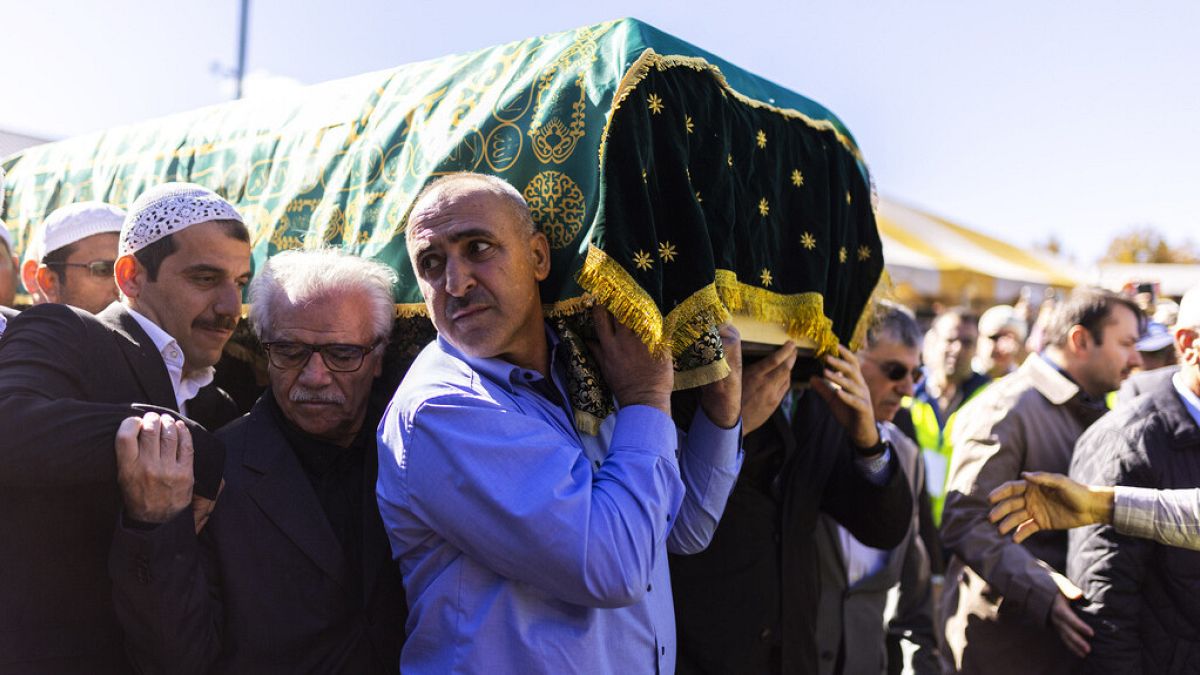Fethullah Gülen, a Turkish Islamic scholar who was accused by Turkey’s president of orchestrating a coup in 2016, passed away on Sunday at a Pennsylvania hospital. In the US, thousands gathered on Thursday to mourn and pay their respects to Gülen, who had been living in self-exile. Mourners, including family and friends, gathered in a small stadium in northern New Jersey for a prayer service and funeral, with police maintaining security. After the service, Gülen was laid to rest in Saylorsburg, Pennsylvania, where he had lived for 25 years at the Chestnut Retreat Center.
Gülen’s death marks the end of a controversial figure in Turkish politics. Once allies, Gülen and Turkish leader Recep Tayyip Erdoğan became fierce critics of each other. Gülen accused Erdoğan of being authoritarian and serving his own interests, while Erdoğan labeled Gülen a terrorist mastermind who planned the failed coup in 2016. Despite allegations, Gülen consistently denied involvement in the coup before his death. The attempted coup resulted in the deaths of 251 people and wounded around 2,200 others.
Following the failed coup, Turkish authorities initiated a widespread crackdown, arresting numerous alleged supporters of Gülen and shutting down institutions affiliated with his movement, Hizmet. Erdoğan reacted to Gülen’s death by stating that the movement would be “completely eliminated” and referred to Gülen as a “demon in human form.” Despite the accusations, Gülen continued to maintain his innocence and called for an international investigation into the coup, emphasizing the importance of a fair trial for all individuals involved.
Throughout his life, Gülen had millions of followers in Turkey and around the world, but also had numerous critics. Initially moving to the US in 1999 for medical treatment, Gülen spent the remainder of his life in self-exile. The Alliance for Shared Values, a group based in New York that promotes Gülen’s work in the US, described him as an “intellectual thinker whose impact will be felt for generations.” Gülen’s teachings and movements had a significant influence on his followers and supporters.
In response to Gülen’s passing, Erdoğan expressed that he met a “dishonorable death,” emphasizing his disdain for the scholar. However, Gülen’s supporters continue to defend his legacy and teachings, highlighting his contributions to education and humanitarian efforts. Despite the controversy surrounding his death, Gülen’s impact on the world of Islamic scholarship and education remains significant, with many mourning his loss and reflecting on his teachings.
As the funeral and burial of Fethullah Gülen took place in the US, his legacy remains a topic of debate and discussion in Turkey and around the world. While supporters celebrate his teachings and contributions, critics continue to allege his involvement in the attempted coup. Gülen’s death marks the end of a chapter in Turkish politics, but his impact and legacy are likely to be felt for generations to come.











